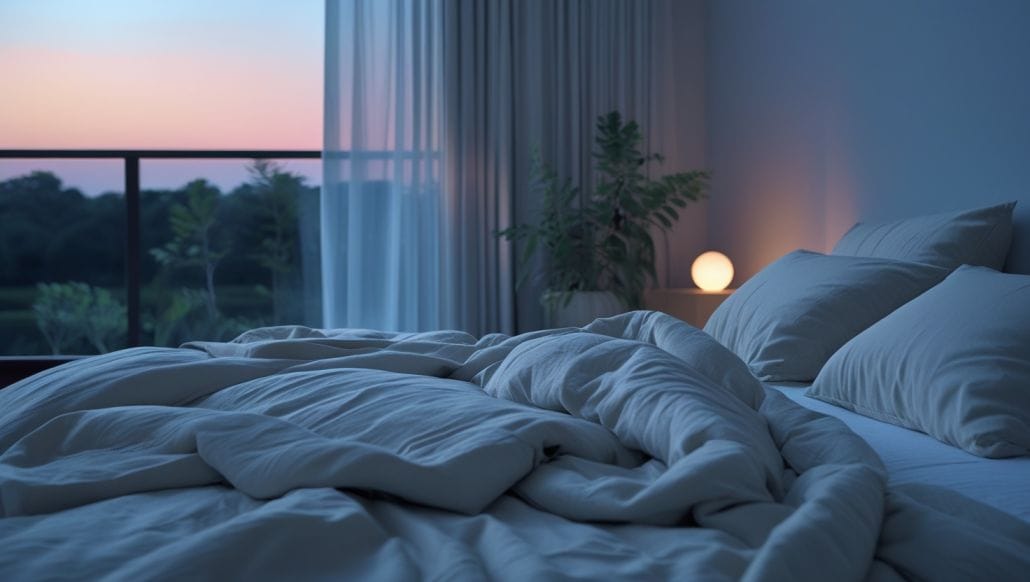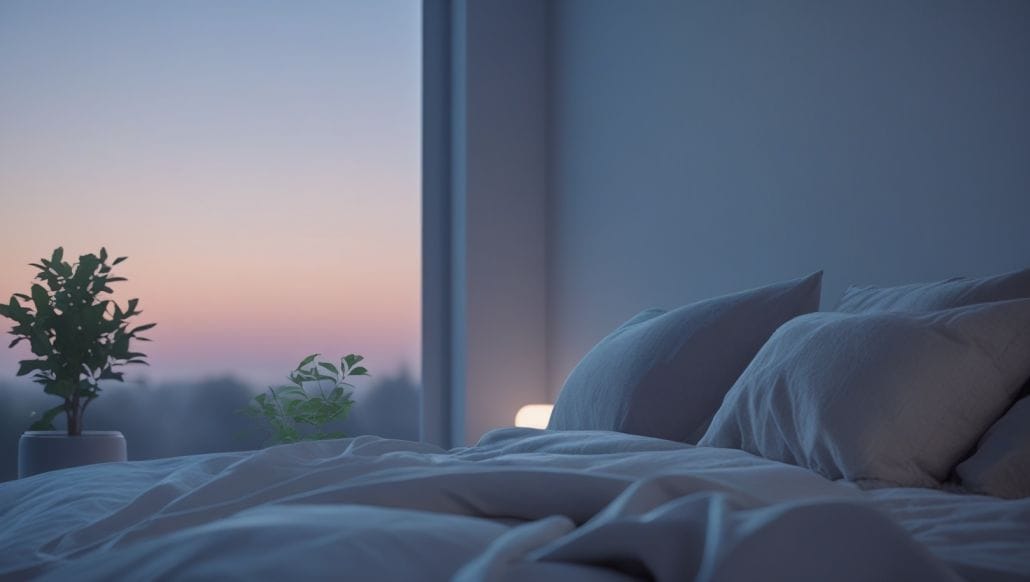Can More Sleep Really Reduce Stress Levels?
Unlock better focus, energy, and resilience with smarter sleep habits. Simple shifts can lower stress and boost your life—starting tonight.

Ever wonder why even the best hacks for energy or focus still leave you feeling drained? The answer might be simpler—and more powerful—than you think.
Sleep isn’t a luxury; it’s the upgrade your mind and body are begging for. When you sleep smarter, you don’t just survive the day—you dominate it.
If you’re ready to stress less, think sharper, and feel better without forcing it, it’s time to start where real change happens: better sleep.
Why Sleep Controls Stress (Not the Other Way Around)
First, let’s get one thing straight: stress isn't just a mental game. It's chemical warfare inside your body. And without enough sleep, you're losing the battle before the day even starts.
Here’s what’s happening biologically every night (or not happening if you’re shortchanging sleep):
- Cortisol recalibration: Sleep is when your brain tells your adrenal glands to slow production of cortisol, your primary stress hormone. Good sleep resets the system. Bad sleep keeps the alarm bells ringing.
- Neural maintenance: Deep, non-REM sleep triggers your brain’s cleanup system (the glymphatic system) to flush out built-up waste proteins linked to anxiety, depression, and mental fog.
- Emotional reprogramming: During REM sleep, your brain reprocesses emotional experiences. Without enough REM cycles, yesterday’s stresses don’t get filed away—they pile up.
In fact, a landmark study published in The Lancet Psychiatry found that disrupted sleep patterns not only predict higher stress but also heighten vulnerability to anxiety, anger, and even clinical depression.
Sleep isn’t a bonus. It's your emotional reset button.

Small Shifts That Make a Massive Difference
The good news? You don’t need a $2,000 mattress, blackout pods, or meditation retreats to fix your sleep. You need smarter, science-backed moves that fit into your real life.
Anchor your mornings first. Forget obsessing over bedtime. Focus on waking up at the same time every day—even on weekends.
Why? Your circadian rhythm (internal clock) needs a stable "wake signal" more than anything.
Regular wake-ups reinforce predictable cortisol spikes in the morning—helping you feel more alert, less stressed, and naturally sleepy at night without effort.
Rethink your nights. That last hour before bed? It’s critical. Your brain needs a clear runway to power down. Screens, emails, and TikTok doomscrolling jack up dopamine and cortisol at the worst possible time.
Instead, trigger your body’s natural wind-down response: dim the lights, switch to a paperback, stretch lightly, breathe slower. Act like you’re trying to bore yourself to sleep.
Master your environment. Your bedroom is a sleep performance zone, not an entertainment center. Cool it down to 60–67°F (15–19°C).
Block out stray light. Use a cheap fan if you need white noise. The goal? Mimic the natural environments we evolved to sleep in—cool, dark, quiet, and predictable.
Light exposure is everything. Within an hour of waking, step outside and get natural sunlight on your skin and in your eyes (no sunglasses at first).
Morning light calibrates your internal clock better than anything else. By contrast, block bright artificial light after dark to reinforce that it’s nighttime. Think: sunlight early, candlelight vibes late.
Fuel smarter, not later. Caffeine isn’t your enemy, but mistiming it is. Cut it off by early afternoon. As for late-night snacking, heavy meals can disrupt sleep depth.
If you need something, reach for a small, carb-based snack—like a banana or oatmeal. Carbs can promote melatonin production and help you sleep deeper.
How Better Sleep Rewires Your Stress Response in Real Life
Solid sleep doesn’t just make you feel a little less tired. It fundamentally rewires how your body and brain respond to daily chaos.
- Sharper Decision-Making: Sleep strengthens connections in your prefrontal cortex—the control tower of your brain. Better sleep makes you slower to react emotionally, quicker to adapt, and sharper at solving problems under pressure.
- Faster Physical Recovery: Your body floods with human growth hormone (HGH) during deep sleep, repairing muscles, boosting immunity, and helping you recover from workouts, sickness, and stress faster.
- Balanced Hunger and Mood: Sleep controls ghrelin and leptin, the hormones responsible for hunger and satiety. Poor sleep leaves you craving sugar, junk food, and stimulants. Better sleep realigns your cravings naturally.
- More Energy to Handle Life: Ever notice how the same annoying coworker or heavy traffic feels a hundred times worse when you’re sleep-deprived? It’s not psychological weakness. It’s a physiological handicap. Good sleep recharges your emotional reserves so minor frustrations stay minor.
Sleep isn’t a side quest. It’s the ultimate unlock.
Why Sleep Is the Stress Solution Hiding in Plain Sight
You’ve been sold the idea that managing stress means adding things: more workouts, more meditation sessions, more productivity hacks. But sleep flips that script. It’s not about doing more—it’s about recovering better.
Without enough sleep, every "self-improvement" effort feels heavier, slower, harder.
With better sleep, you naturally start making better choices across the board—because your brain and body have the energy to handle life without running on fumes.
Getting more sleep isn't retreating from the hustle. It's upgrading your gear so you can go harder, longer, and smarter without burning out.
Final Thoughts: Start Tonight, Win Tomorrow
If you're serious about lowering your stress, sharpening your mind, and feeling better without having to muscle through it, sleep is your first, easiest, and most powerful move.
- Set your wake-up time and protect it.
- Treat your last waking hour like sacred ground.
- Cool, dark, quiet—own your environment.
- Chase sunlight in the morning, ditch bright lights at night.
Forget chasing perfection. Focus on consistency. Every good night sets up a better day. Every better day builds momentum.
You’re not just "getting more sleep." You’re building a foundation strong enough to carry the life you actually want.
Start tonight. Wake up tomorrow with a little more edge—and keep stacking wins from there.




